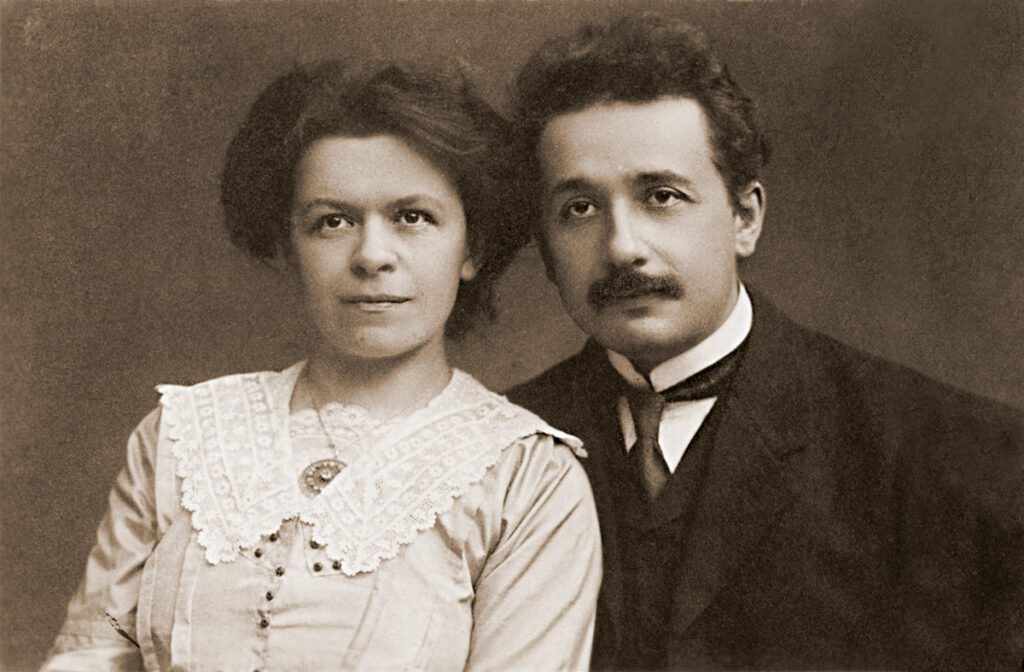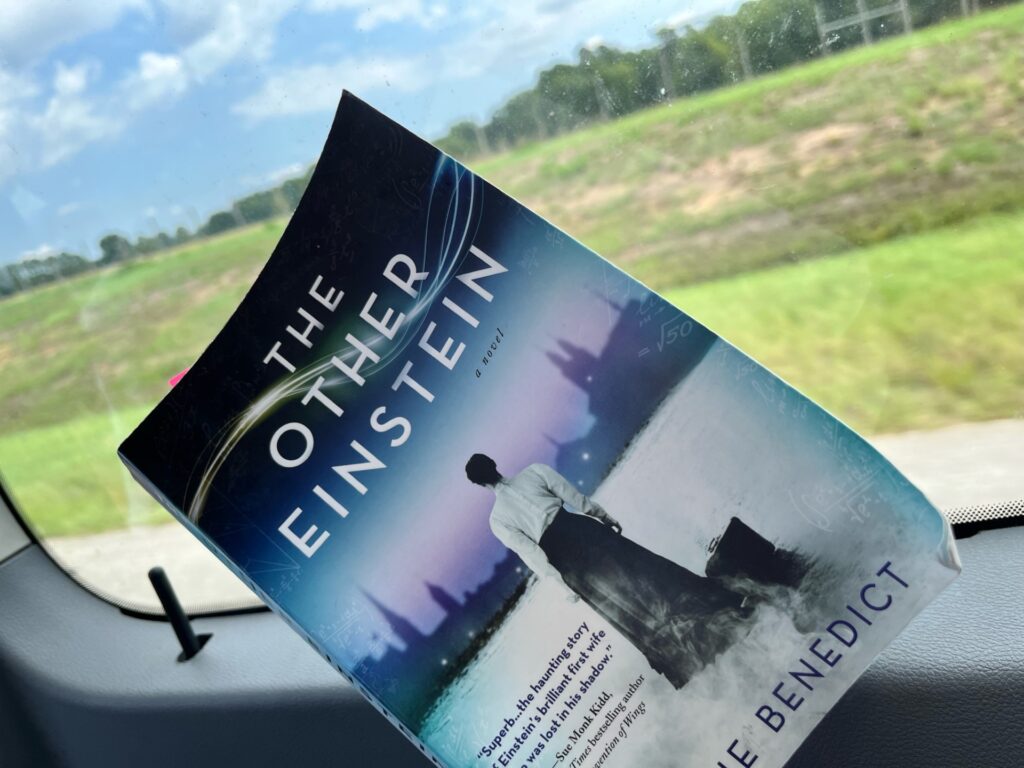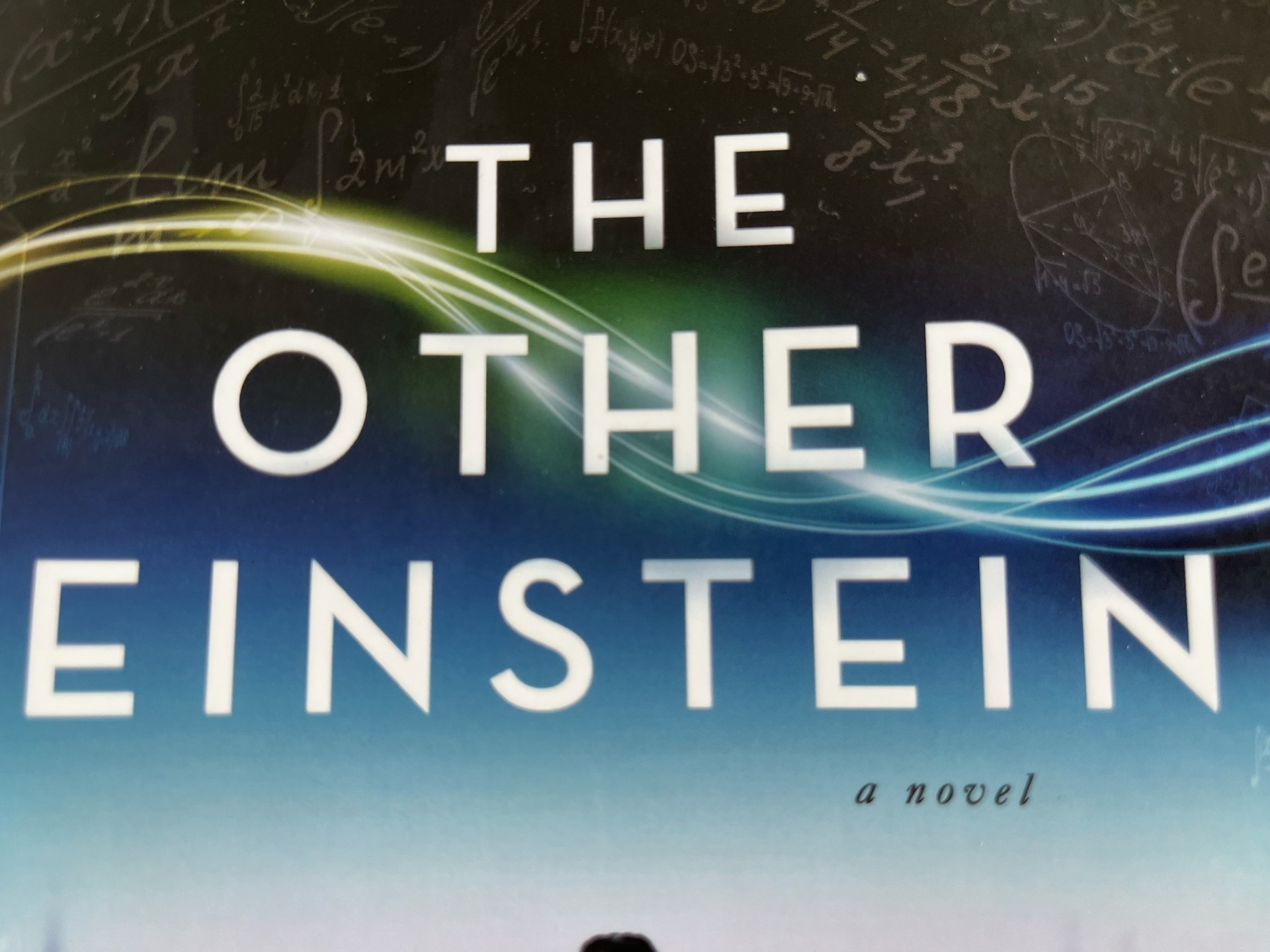“Try not to become a man of success. Rather become a man of value.” This quote by Albert Einstein represents a lot of how he is viewed today. The quirky, lovable crazy hairstyle matches the odd, endearing personality we see of this renowned physicist. We are shocked by the genius of his theory of relativity and the wisdom he seems to give in every situation. We see him as a Jew of German origin struggling against an extremely anti-Semitic culture. But have we ever wondered if there was another side to his story? Or maybe, someone else’s story entirely?
The Other Einstein tells the story of Mileva Maric, Einstein’s first wife. She has an incredibly unique and revolutionary story for her time and place but it has been completely covered by her husband’s prominent figure. The author, Marie Benedict, brings her tale of tragic sacrifice and golden ambition out from the shadows. She reveals that there is a hidden side of Albert few were resigned to see and none could possibly want to. She suggests that even his most famous theories should have been credited to another author. There is another side to every story, but sometimes there is another story entirely.
Discrimination
Mileva Maric was born on December 19, 1875. She was born with unaligned hips that caused her to limp once she began walking. This was not fixable and was considered a birth defect in Serbia. Because of it, she was considered unweddable. This was part of the reason her father decided to encourage her down the path of education, something highly unusual for a woman in Serbia, a very traditional place at the time. And she proved herself to be a brilliant scholar, succeeding at everything she was asked to do.
Once she had completed high school, it became apparent that she was going to have to move to Zurich, Switzerland to attend university, it being the only place accessible to her that would accept a woman. Even at this school in such a progressive place, teachers watched her carefully, looking for ways to say she was not good enough for them. Only the fifth woman to ever attend the university, she struggled against disapproving outsiders and reluctant classmates. At first, she was not able to contribute at all to academic discussions for fear of being refused.

Not only was she a woman, but she was also an Eastern-European with dark features. Even in neutral Switzerland, these people groups were looked down upon, for sometimes seeming no apparent reason. This only helped to add to the stigma surrounding a woman student. Mileva had to be better than the best to be accepted. She worked extremely hard to stay at the top of her class and found friendships among a few other academically minded Slavic girls. She wanted desperately to become accepted by her group of peers and made many relationships based on mutual respect during her time at school. She triumphed over odds Einstein never had to face.
Family Alone
I cannot describe the incredible details hidden in Mileva’s career without first describing how her family developed and what she gave up for them. During her last year at university, Albert, her classmate who had pursued her for years, finally convinced her to begin a romantic relationship with him. Using promises of certain marriage with the highly unusual idea of equal status professionally, Albert seduced her into a four day vacation with him. This at the time was considered highly inappropriate and would have caused great scandal had anyone known. In that culture, sometimes even two people in a room with a closed door was enough to demand marriage between the two parties.
This was made worse when Mileva discovered that she was pregnant. If there was a way to ruin her life, this would be it. The gentlemanly thing for Albert to do would have been to marry her since she was carrying his child and clear her name. However, Albert was struggling for money and needed a job desperately. He said he was not ready for marriage. During the entire time of her pregnancy, he refused even to visit Mileva, who hid at her family’s retreat home to avoid being attached to scandal. At one point, she secretly travelled to an inn a safe distance from where he lived and asked him to come see her discreetly. She stayed until she ran out of money but he could not find the time to come.

When Mileva had their child, it was a rough birth. Her malfunctioning hips made it extremely difficult for her and it was a long and dangerous process. While she fell in love with their child in every way possible, Albert refused to come and see the baby girl even once. Eventually, he did request for her to come stay in the town he was working in, but without her child. Mileva did not want to leave her child, being incredibly attached to her, but her parents convinced her that her utmost goal should be to gain Albert’s interest and marry him. They pointed out that the worst possible thing for her child’s future was for her to be known as an illegitimate child. That would destroy her prospects forever. And so, Mileva sacrificed over a year with her child.
That year ended up being her last. Once Mileva and Albert finally got married, he continued to resist her requests for the little girl to join them. He was adamant that no scandal could be risked to preserve his job and refused any scheme to keep their name scandal-free and the child with them. When Mileva heard that her baby was sick, she raced back to her. She nursed her night and day but it was not enough. The child died without ever meeting her father and having no memory of her mother.
Mileva continued on to bear Albert two legitimate sons, but their relationship deteriorated after his extreme lack of compassion towards her and her child. He continued to shut down her life in many ways, some of which were heavily career based. Her marriage was a duty, initiated to protect a child who was no longer living and maintained to protect her children now from the scandal of divorce. She became used to Albert using their apartment as an occasional stomping ground. She allowed him to move the family to a city that was far from all of her friends and family, full of horrible pollution, and lacked fresh food. But when she found him openly involved in an affair for the second time and her child became dangerously ill because of the pollution, she had had enough. She left the city with her two children, without Albert.
The Highest Sacrifice
Mileva spent most of her life focused on education and working towards her career. She was convinced that her interests would always lie in the field of sacrifice. At that time, a woman could not entertain the idea of a balanced family and work life. It was one or the other. A woman who was married or raising children would never be taken seriously as a scientist. And so, when at the end of the first term, Albert professed his feelings for her, it was an event of traumatic proportions, especially because she felt the same way about him. In an attempt to protect herself from these romantic ideas, she took a semester off.
Missing an entire semester of class was devastating for her academic standing. She had to work ten times harder to make up the semester while continuing on with further school work. And this sacrifice she had made because of Albert did not work. He continued to pursue her until she gave in. This resulted in her finding herself pregnant before final exams. Battling extreme symptoms of morning sickness and other issues, while trying to keep her pregnancy a secret, made her exams incredibly difficult. Not surprisingly, she failed them and lost every chance of the degree she had banked her entire future on.

Later down the road, mourning the death of her first child, she came up with a theory, eventually titled the theory of relativity. Albert worked with her very hard on a paper explaining this theory in memory of her child and then struck her name from its list of authors against her wishes. This was something she could not forgive him for. She had written it for her lost child whom he had never even bothered to see. He continued to receive her help privately with projects, claiming her to be “the mathematician of the family.” And time and time again, he removed her assistance from the record, sometimes even publicly.
His fame grew and grew as her paper on relativity took off. As his fame grew, it seemed his distaste for her grew. He started denying her assistance on work and instead asking others for help. He did not like her sharing her scientific knowledge or joining into academic discussions with others. He shut down her highly valued tie to the scientific world.
This novel is historical fiction. Not all of these details are true, many of them are speculation because not a lot about Mileva is documented. However, significant research did go into the project and most of the information is possible if not confirmed. While it was heavily biased against Albert, I really appreciated Mileva’s story being focused on in the way it was. It was truly a book about her and revealed some difficult elements of her life. It was a great reminder that everyone has a different story. Popular is not the same as perfect.
